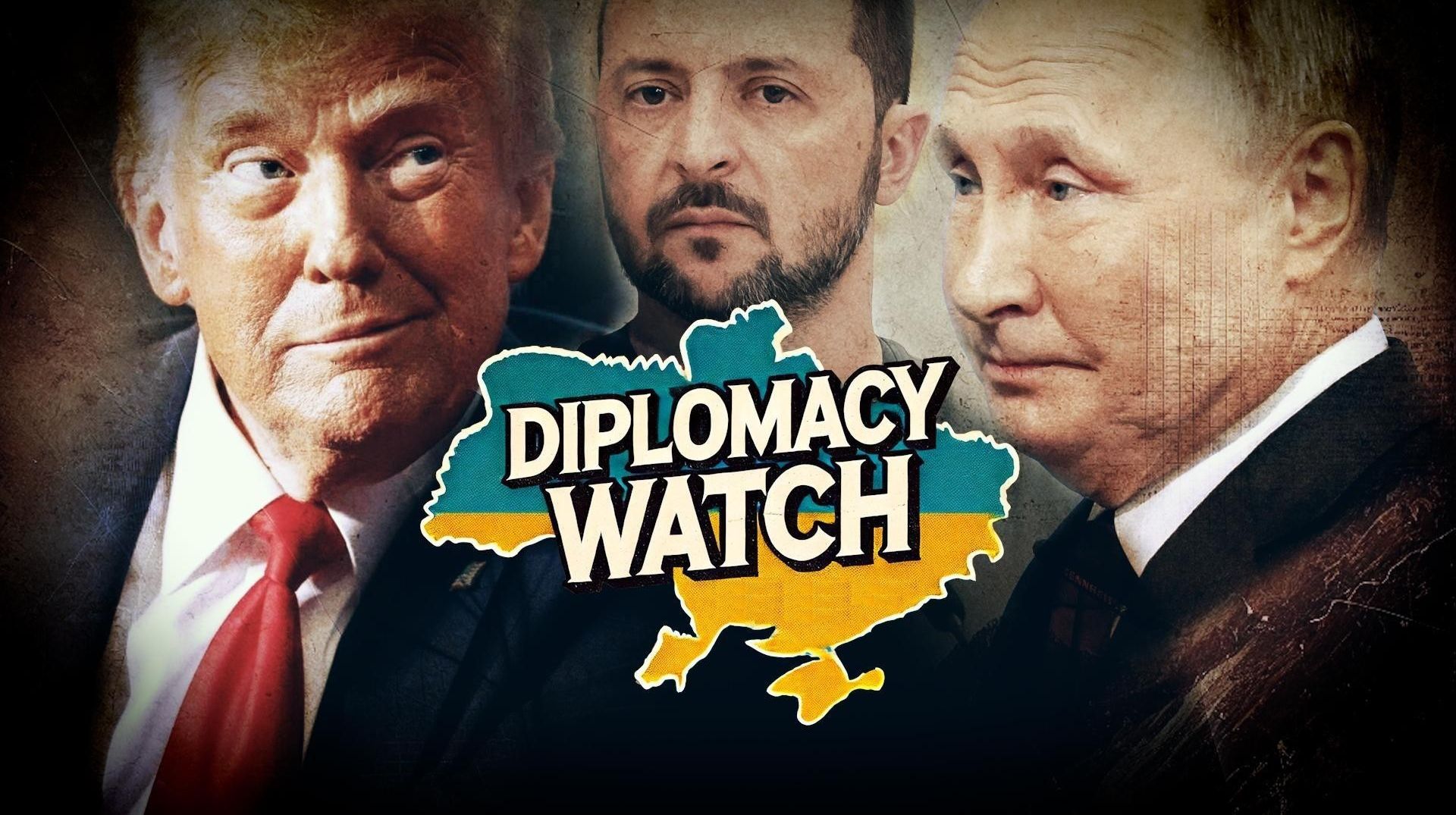President Trump has again signaled that the United States may retreat from Russia-Ukraine peace negotiations. After a two-hour-long phone call with Russian President Vladimir Putin, Trump called the war a “European situation,” and told reporters, “This isn’t my war, we got ourselves entangled in something we shouldn’t have been involved in.”
He ended on an optimistic note, saying “negotiations between Russia and Ukraine will begin immediately,” but indicated that the Vatican would be open to mediating negotiations, rather than the United States. The president also suggested that the United States was not yet withdrawing from negotiations, but was only considering doing so: “I think something’s going to happen, and if it doesn’t, I just back away and they’re going to have to keep going.”
“The conditions for that will be negotiated between the two parties, as it can only be, because they know details of a negotiation that nobody else would be aware of,” the president said regarding a ceasefire, adding that the tone of the conversation was “excellent.”
Despite Trump’s optimistic comments, it’s reported that his call with Putin did not include demands for Russia to make concessions, and Vice President JD Vance told reporters on Monday that the U.S. is “more than open to walking away.” Additionally, during a call with European leaders that took place after his call with Putin, witnesses claim Trump conceded that Putin was not willing to pursue peace negotiations because Russia was winning the war.
Some European leaders are frustrated that Trump did not seem to push against the Russian-made demands during last week’s talks in Istanbul, or threaten Putin with additional sanctions.
Even with these threats to possibly walk away, the Trump administration seems committed to sending aid to Ukraine and still maintains a host of sanctions on Russia.
For his part, Putin said, “I would like to note that, on the whole, Russia’s position is clear. The main thing for us is to eliminate the root causes of this crisis; we just need to determine the most effective ways to move towards peace.”
Kremlin Spokesperson, Dmitry Peskov, added that “there are no deadlines, and there cannot be any. It is clear that everyone wants to do this as quickly as possible, but of course, the devil is in the details.”
In other Ukraine War news this week
The New York Times reports that Russia is expanding its military presence along the Finnish border. Satellite images confirmed that additional tents and buildings meant to store military equipment have been popping up along the border, despite Russia’s current low troop count there.
Also reported by The New York Times, Ukraine fired hundreds of drones into Russia on Thursday morning, one of its largest attacks during the war. According to the Kremlin, 485 drones were shot down while targeting 10 regions in Russia. It is unclear how much damage the drones caused, but multiple airports in Moscow were shut down temporarily. This comes after Russia launched 128 drones into Ukraine.
The United Kingdom and European Union are introducing fresh sanctions on the Kremlin. According to Reuters, the day after President Trump spoke with Putin, EU leaders approved a package of sanctions targeting oil exports. German Foreign Minister Johann Wadephu commented, “we have repeatedly made it clear that we expect one thing from Russia—an immediate ceasefire without preconditions.”
There were no State Department press briefings this week.
- Diplomacy Watch: Euro leaders reeling after Trump-Putin call ›
- With Putin, Trump's 'art of the deal' is put the the test ›
- Why Trump must not walk away from Ukraine War talks | Responsible Statecraft ›
- Did Trump just dump the Ukraine War into the Europeans' lap? | Responsible Statecraft ›
















